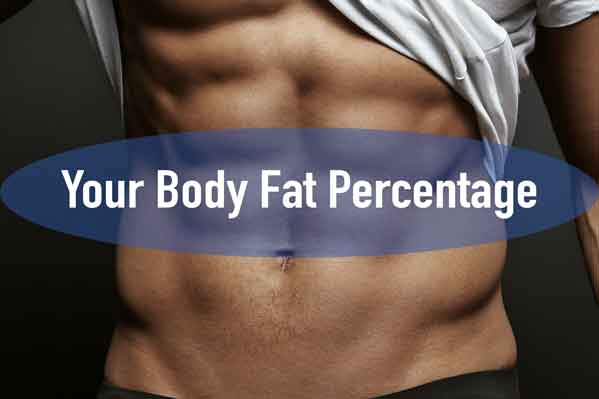All You Need to Know About Low Carb Diets

Low-carb diets are a big trend in our day and time and more and more people are tempted to try one out.
It is true that a low-carb diet can offer a lot of benefits to someone and we all probably know someone close to us who has followed a low-carb diet correctly and has been talking about all the benefits.
If you are interested in learning more about the types of low-carb diets and how to follow them correctly, this beginner's guide will truly help you get started on your low-carb journey.
If you would prefer to just check out our Meal Planner to give you low carb meal ideas for your meal plan then please click here.
Topics covered in this guide
What exactly is a Low-Carb Diet?
What to eat on a Low-Carb Diet
Types of Low-Carb Diets
What are the benefits of a Low-Carb Diet?
Are there any side effects?
Is it suitable for vegans and vegetarians?
Is it possible to gain weight on a Low Carb Diet?
Is this diet suitable for athletes?
What exactly is a Low-Carb Diet?
A low-carb diet is a diet plan that suggests that the person following it should only consume a very small and limited amount of carbohydrates throughout the day. There are quite a few foods that need to be limited during a diet low in carbohydrates and it generally is considered a bit difficult to follow at first.
Low-carb diets have been known to help people lose significant amounts of weight and have also been related to a number of health benefits that will be discussed later on in the article.
What to eat on a Low Carb Diet
Even though carbohydrates need to be limited, there are always some options that include fruit and vegetables that are low in carbohydrates which can be consumed in small amounts.
The biggest part of this diet though revolves around consuming foods which are high in protein and fat. These macronutrients mainly come from animal products such as fish, eggs and meat as well as high-fat dairy. Nuts and seeds are also acceptable but in smaller portions since they do contain small amounts of carbohydrates.
The most important foods to avoid in this diet are all those that contain sugar as well as starchy foods, such as bread, pasta, rice, potatoes, most legumes and many other things that can offer a plethora of carbohydrates to the body.
Counting Macronutrients
Based on the different types of diets that there are out there, based on a low-carb principle, the macronutrient count can vary.
Some of the most well known low carb diets limit carbohydrate intake to 20-50g per day, depending on the person's body weight (although in many cases anything under 100 grams can still be considered low carb).
Most types of diets will stick to that principle, not reducing the carbs any further but only changing the percentages of the fat and proteins, making the diet plan either a Low Carbohydrate High Fat (LCHF) or a Low Carbohydrate High Protein (LCHP) diet.
In any case, when following a low-carb diet, it is important to make sure that your calorie intake is sufficient and that you get enough protein so that you do not end up losing muscle mass.
About fats
In our day and time, many people are afraid of fats (although that view has clearly begun to change recently). This mainly started out as a fear of fats being related to weight gain and a variety of health problems, especially heart related ones.
In reality, fats are essential in our everyday diets but there are still some things we should be careful of.
Saturated fats are said to increase the levels of LDL cholesterol, and for many years it was believed that they could be a cause of heart disease. Even if this is the case for some people with hereditary problems, this side effect can be reversed by adding sufficient exercise in your everyday life.
Some foods in this category are:
- Red meat
- Eggs
- Fatty cheese
- Full-fat dairy
Healthy fats are the so called unsaturated, monounsaturated and polyunsaturated ones which are known to help increase the levels of HDL cholesterol and protect our bodies from cardiovascular problems.
Some foods containing healthy fats are:
- Extra virgin olive oil
- Avocados
- Fish
- Flax, chia, hemp etc. seeds
As you might have noticed already, most foods that contain healthy fats are probably not included in a LCHF diet plan as they usually contain a bigger amount of carbohydrates.
Recent studies have shown that saturated fats might not be such a big enemy after all and many have concluded that they do not actually increase the risk of heart disease.
In fact, it is estimated that cardiovascular risks are more likely to be influenced by specific nutrients that are used in order to replace saturated fats in foods.
The best thing to do here is to follow a diet plan that you believe will be best for you and after some time check your LDL and HDL cholesterol levels in order to see if it is right for you and beneficial to your health.
Summary: Low-carb diets consist of very small amounts of carbohydrates in a person's daily meals. They can be quite restrictive but there are many food options for anyone who wishes to follow one. Even though it can be high in fat, many studies nowadays show that saturated fats are not the cause of heart disease and therefore LCHF diets can be followed by anyone who wishes to give them a try.
Types of Low-Carb Diets
Throughout the years, there have been many variations and types of low-carb diets. All of them can be very beneficial to the person who follows them but as with everything else, this depends on each person's preferences, abilities and expectations.
Atkins Diet
The Atkins diet is a low-carb diet that was created in 1972 and aims toward weight loss.
This diet plan supports the consumption of fatty meats, butter and other high fat dairy products according to the person's preferences and only restricts the carbohydrate consumption to fewer than 30g per day.
It is considered a LCHF kind of diet and it has become so popular in our day and time that you can easily find products both online and in stores, labeled as appropriate for the Atkins Diet.
Learn more about The Atkins Diet here
Ketogenic Diet
The ketogenic diet is a type of low-carb diet that was created in the 1920s in order to mimic biochemical changes in the body associated with starvation, which help the body lose weight a lot faster and achieve an overall better health state.
This diet is a LCHF kind of diet, as the biggest part of the calories come from fats. Carbohydrates are supposed to be kept at a very low level of consumption, while protein consumption is supposed to be moderate.
When carbs are not consumed for a particular amount of time, the body enters a state of increased fat burning which leads to ketosis.
Studies on ketogenic diets came to the conclusion that the amounts of carbohydrates consumed should not excess 20-50g per day. Upon the consumption of more carbohydrates, fewer ketones are produced in the liver and therefore the fat loss process will be slowed down.
Learn more about The Ketogenic Diet here
Paleo Diet
The Paleo diet is based on assumptions of how people used to eat a very long time ago, before the agricultural and industrial revolution happened.
This diet includes a large variety of foods that are natural and whole foods that have been processed as little as possible.
It is a low-carb diet where many high carb foods are avoided, as many scientists support that starches and cereals were not part of the daily diet of people in the past, as people tended to consume whatever was available at the time.
The Zone Diet
The Zone diet basically encourages the people following it, to consume certain amounts of protein, carbs and fat in order to achieve particular health benefits.
More specifically, carbs should stay at a 40% of total calorie consumption, proteins at a 30% and fats at a 30%. This is still considered a low-carb diet as the amount of carbohydrates suggested by this diet is lower than what the recommended percentage is.
This diet also suggests that carbs should have a low glycemic index in order for the sugars to be released slower into the blood so that you feel fuller for longer.
This can also help with type 2 Diabetes as it can help improve insulin resistance and prevent blood sugar spikes. Also, proteins should be lean and the fats mainly monounsaturated.
The Zone diet is said to have a number of benefits from improving inflammation in the body to weight loss and prevention of hearth problems.
Learn more about The Zone Diet here
Summary: There are many different types of low-carb diets. Some can be a little more difficult to follow while others have become so widespread that you will be able to find instructions and appropriate foods almost everywhere. Choosing the right one always depends on your personal choices and goals.
What are the benefits of a Low-Carb Diet?
A low-carb diet can truly offer a lot of benefits to the person following it. Here are some of the most important and common ones which you might want to know about if you are considering giving this diet a try.
Type 2 Diabetes
When it comes to Diabetes and carbohydrate consumption, most people are advised to follow a low-carb diet in order to benefit from better glycemic control and a decrease in body weight.
Studies have supported that after following a low-carb diet for a while, participants experienced a greater reduction in diabetes medication, glycemic variability, triglycerides and higher levels of HDL cholesterol.
People who followed this diet through a study by Eric C. Westman et al. managed to achieve greater weight loss and better glycemic control and it was concluded that low carbohydrate interventions can truly be effective for improving and reversing type 2 Diabetes.
Weight loss and reduced appetite
There are many studies out there that support that low carbohydrate diets are effective for weight loss. For the biggest part, this happens because as you remove carbs from your diet you also manage to reduce your appetite.
Low-carb diets are usually high in protein and they tend to suppress a person's appetite even more.
A very important thing to keep in mind here is that removing carbohydrates almost completely from your diet means that you will really only be able to consume a smaller variety of foods.
This will lead to reducing your calorie intake and that will inevitably lead to weight loss. Of course, eating a smaller variety of foods is not always a good thing so if you are following this diet for extended periods of time it is important to make sure you are consuming all of the vitamins and minerals your body needs.
Metabolic Syndrome
Restricting your carbohydrate consumption has been shown to improve metabolic health.
It can help reduce postprandial hyperglycemia which pretty much means that it can help the body deal better with exaggerated rises in blood sugar after the consumption of a mean and help limit the harmful metabolic and cardiovascular consequences this causes.
Not only that, but low carb diets have also helped people achieve a better body composition and blood lipids.
Especially when combined with High Intensity Interval Training (HIIT), the benefits of this diet are maximized and it is hypothesized that this routine can potentially help treat metabolic disease.
Heart Disease
Studies on people who were following a LCHF diet have shown great improvements in some cardiovascular risk factors and those results were mainly related to the weight loss that was achieved.
As we mentioned earlier, there are new studies that have shown that saturated fats are probably not the reason behind heart disease and cardiovascular problems.
The weight loss achieved by a LCHF diet can be great, but experts suggest that lipid levels should be monitored in any case.
Most studies that focused on people who followed a Low Carb High Protein type of diet showed great results not only from a weight loss perspective but also in regards to triglyceride levels, LDL cholesterol decrease and at the same time HDL cholesterol increase and a reduction in waist circumference, which can all be great indicators of potential heart problems.
These results can be of aid to anyone who knows that there is a cardiovascular disease history in their family and can help them prevent and improve future and current problems by following the right diet plan.
Summary: Low-carb diets can offer a large array of benefits to those who follow them to the letter. Not only can they help with weight management, but they can also help with a lot of different issues like metabolic and heart disease and maybe even most importantly type 2 Diabetes.
Are there any side effects?
The most common side effects of this diet are dizziness, headaches and an overall feeling of weakness. This is totally normal and only reflects the lack of an easy energy source for your brain which comes from the reduction of the carbohydrates.
Due to the lack of fiber in the diet variations that are very low carb, a person might also experience changes in the quality of bowel movements, so, constipation can be expected.
Some other side effects that have been noted include halitosis, muscle cramps, diarrhea and in some cases rashes.
A more moderate low carbohydrate diet will negate most of these potential side effects.
Summary: Headaches and nausea are usually the most common due to a lack of carbohydrates from the diet. Along with those, constipation is also quite common. More severe side effects are not presented in every study and it is unlikely that you will experience them. These side effects tend to be more pronounced the less carbohydrates you consume.
How difficult would it be for a Vegan or a Vegetarian to follow this diet?
Being a vegetarian and giving a low-carb diet a try doesn't seem like that big of a problem.
There are many good proteins and fat sources for you that can easily help you consume as much as you need based on your chose type of diet and you will not have to make great sacrifices in order to benefit from the health benefits or the weight loss.
Here are some vegetarian food options that are naturally low in carbs:
- Eggs
- Greek yogurt, kefir and regular yogurt(unsweetened)
- Cheese
This could be a lot trickier for a vegan though, as there are not as many food options as is a vegetarian diet. A vegetarian is able to consume eggs and dairy and get sufficient protein and fats even if they don't consume meat but a vegan chooses not to consume any animal products whatsoever.
Thankfully though, there are quite a few options of low-carb foods from plants and both vegans and vegetarians can take advantage of this fact in order to keep their low-carb diet up.
Here are some examples:
- Avocados
- Nuts and seeds
- Soy and soy products
- Some legumes
- Extra virgin olive oil
- Dark chocolate
As you can see, there are quite a few options to choose from and when combining them with some low-carb fruit and vegetables, you will be able to create some great meals that will be low in carbs. Going for a very low carb diet (less than 50grams) is likely to be difficult though.
A more realistic (and most likely more healthy) idea would be to set your carbohydrate limit a little higher (less than 40% or less of calories coming from carbs).
You can always use our Meal Planner in order to help you get started on this journey and provide you with some meals ideas to help you reach your health and weight loss goals.
Is it possible to gain weight on a Low Carb Diet?
The answer to this question is definitely a yes! Many people believe that by cutting down carbohydrates in their diet, they won't put on weight as carbs are what make them gain weight.
This is incorrect…
It is important to know that no matter what kind of macronutrients we consume, if we consume them in a bigger amount than the one we need, they will definitely be stored as fat.
That even applies to protein and protein shakes that many tend to overuse. If you wish to benefit from weight loss through a low-carb diet, you need to make sure that the macronutrients you consume do not exceed your daily calorie limitations.
The best way to deal with this is to count your calories during your diet and make sure that you are getting just the amount you need.
Find out how many calories you need to eat
Is this diet suitable for athletes?
As far as performance athletes are concerned, it is usually advisable not to follow a low-carb diet as the more intense and long-lasting the physical exertion, the higher the need for carbohydrates.
This happens because the stored glycogen is used up after rigorous exercise and afterwards the athlete will need to replenish it in order to be able to fuel the muscles for the next intense exercise.
On the other hand though, some athletes of different fields do indeed follow low-carb diets and are seeing great results with it. This state is called low-glycogen training and it can actually lead to better adjustment/adaption processes in selected training stages and it can also help these particular athletes increase their performance ability.
Therefore, low-carb diets can be followed by athletes, but that will always depend on the type of exercise they are doing.



